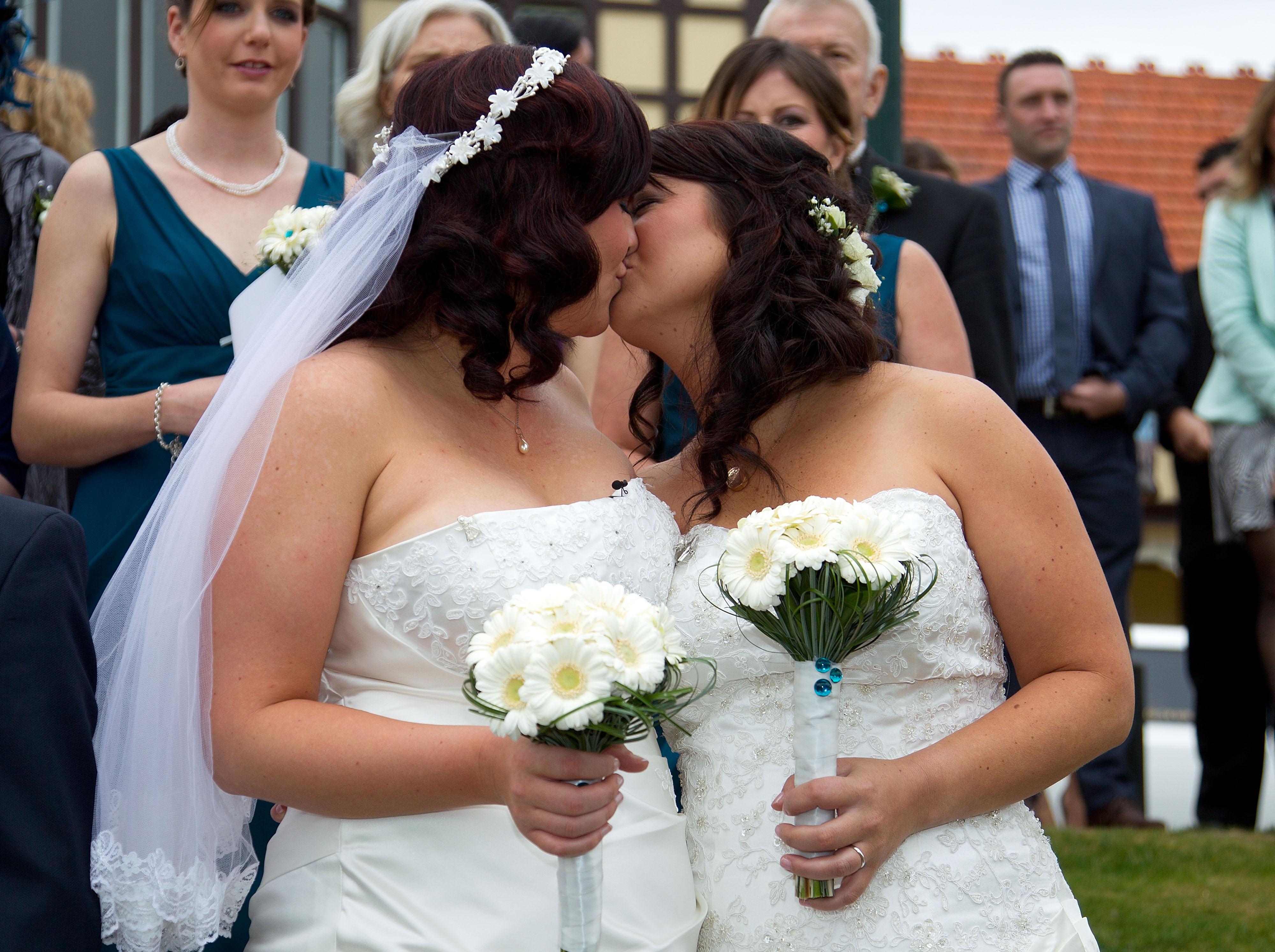When I interviewed gay artist Justin Sayre last month about the prognosis for “gay culture” in the age of mainstream assimilation—especially via gay marriage—he posed a thought experiment that went something like this: Just imagine! You’re in a gay bar sitting alongside some younger men, and, instead of talking about the opera or Madonna’s tragic new single or the tightly panted gentleman across the room, you hear them moaning into their martinis, “Oh! How will I ever find a husband?” We both shuddered.
For Sayre, the post-DOMA rush to the altar is not progress; it was the stuff of bad dreams. Likewise for the subjects of Cara Buckley’s piece in this past weekend’s New York Times style section, “Choosing to Say ‘I Don’t’.” While everyone in the article believes that LGBT people should have the right to get married if we choose, they are less sure that cashing in on that option is a good idea. Some fear problems all too familiar to straight couples, like divorce and financial burdens. But Buckley finds other committed-but-non-marrying couples who possess more interesting reservations, ranging from those who espouse the feminism-based critique of marriage as an outmoded and oppressive patriarchal institution to those who see it as a tool that elite or upwardly mobile (white) people use to solidify their wealth at the expense of more worthy gay causes, like youth homelessness and AIDS activism.
Then, there are those who, being somewhat old-fashioned by dint of age or sensibility, can’t help but feel that marriage is just too lame—just too, well, “straight”—to be gay. Buckley writes:
Indeed, many older gay men and lesbians came of age with the belief that their relationships bested heterosexual couplings.
“For people in the ‘60s, ‘70s and ‘80s, there was a feeling that L.GB.T. people can do better than marriage, that relationships can be more egalitarian” when built around untraditional families, said Mary Bernstein, a professor at the University of Connecticut and an author of “The Marrying Kind?” which examines the marriage debate in the gay rights movement.
Or as the filmmaker John Waters once said: “I always thought the privilege of being gay is that we don’t have to get married or go in the Army.”
Buckley’s exploration of gay marriage anxiety represents the rare “trend story” that documents a real thing; I cannot count the number of times I’ve heard these exact worries discussed—especially the John Waters articulation—at gay-populated dinner parties and events. Nor could I add up the hours my partner and I spent eyeing marriage as if it were a fat slug on the carpet that we needed to deal with but didn’t really want to touch. When we finally did quickly and efficiently touch it a few months ago for pressing financial and legal reasons, the “procedure,” as we called it, was perfectly lovely—but we still blush a bit when friends offer their congratulations.
Behind that blush—and behind the gay philosophical wedding recoil in general—is the thorny question of what it means to get married as a gay person. For those who have never seen anything particularly interesting about being gay (call them the “virtually normal” crowd) marriage means the same things it has always meant to conventional straight people. But for those of us who find in our gayness something inherently political—a word which includes matters of style (see Sayre) as much as it does anti-patriarchal ideology—marriage has the potential to mean much more, and not all of the connotations are joyful.
For all the talk of “hacking” marriage to make it suit your needs, the fact stands that it is a fundamentally conservative institution and one which heaps upon its participants a bunch of assumptions and a social status-bump (“Oh, now your relationship is serious!”) that they are just as likely to resent as to appreciate. Even in 2013, marriage still tends to be read as an indication of a couple’s graduation into the responsible, mainstream world—which, of course, is a place that many gays have long eyed with suspicion. Hopefully these trappings will eventually fade, but in the meantime, don’t begrudge us a little hand-wringing. As Buckley’s article proves, all those lovely wedding bells are causing a lot of cognitive dissonance.
